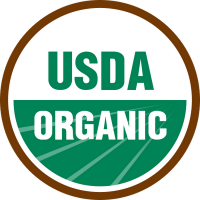 The question often arises whether organic produce is worth the extra money compared to conventional fruits and vegetables. The answer is both yes and no. Some fruits and vegetables have very little pesticide contamination making it not necessary to buy them organic. Still others have high levels of pesticides which whenever possible should be bought organic to avoid exposure. Of course if one does not have the funds to purchase organic produce, a diet rich in fruits in vegetables outweighs the risks of pesticide intake. Below is a list courtesy of the Environmental Working Group (EWG) which can be used as a guide when shopping for produce.
The question often arises whether organic produce is worth the extra money compared to conventional fruits and vegetables. The answer is both yes and no. Some fruits and vegetables have very little pesticide contamination making it not necessary to buy them organic. Still others have high levels of pesticides which whenever possible should be bought organic to avoid exposure. Of course if one does not have the funds to purchase organic produce, a diet rich in fruits in vegetables outweighs the risks of pesticide intake. Below is a list courtesy of the Environmental Working Group (EWG) which can be used as a guide when shopping for produce.Dirty Dozen:
1. Apples
2. Celery
3. Sweet Bell Peppers
4. Peaches
5. Strawberries
6. Nectaries
7. Grapes
8. Spinach
9. Lettuce
10. Cucumbers
11. Blueberries- domestic
12. Potatoes
+ Green Beans*
+ Kale/Greens*
The EWG has expanded the Dirty Dozen with a Plus category to highlight two crops -- green beans and leafy greens, meaning, kale and collard greens - that did not meet traditional Dirty Dozen criteria but were commonly contaminated with highly toxic organophosphate insecticides. These insecticides are toxic to the nervous system and have been largely removed from agriculture over the past decade. But they are not banned and still show up on some food crops.
Clean Fifteen (Lowest in Pesticides):
1. Onions
2. Sweet Corn*
3. Pineapples
4. Avocado
5. Cabbage
6. Sweet Peas
7. Asparagus
8. Mangoes
9. Eggplant
10. Kiwi
11. Cantaloupe- domestic
12. Sweet Potatoes
13. Grapefruit
14. Watermellon
15. Mushrooms
*Commodity crop corn used for animal feed and biofuels is almost all produced with genetically modified (GMO) seeds, as is some sweet corn sold for human consumption. Since GMO sweet corn is not labeled as such in US stores, EWG advises those who have concerns about GMOs to buy organic sweet corn.
